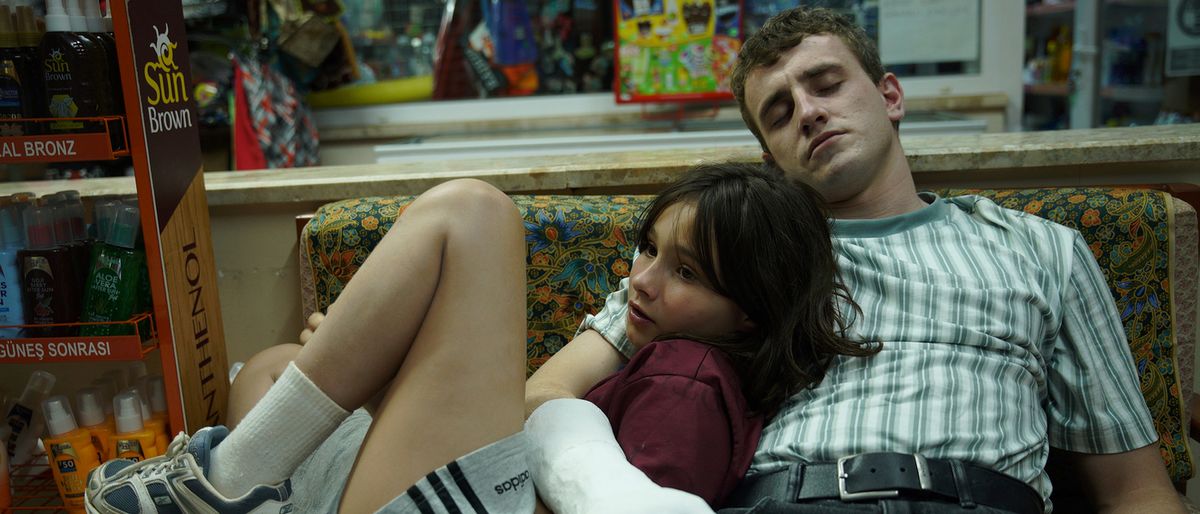Filmnotes: Aftersun
waggishly; "An indie film for Normal People"

I don't think I've seen a film recently that made me feel more than Aftersun did. Not big, dramatic emotions, necessarily—I did cry during the cinema visit, but only at the Alzheimers Society ad before the film—but the small emotions, the ones that compound or calcify with the repetition of the interactions that cause them; the emotions not of fiction but of splendid mundanity.
We follow Frankie Corio's Sophie, an eleven-year-old, and Paul Mescal's Calum, her father, who turns thirty-one during the film's events, on a package holiday in Turkey in the Nineties. Calum is separated, apparently amicably, from Sophie's mother, but appears to be suffering from poor mental health and uncertain life prospects, though he's hiding this from Sophie. Throughout the film are dropped in bits of video footage being shot by Sophie on her camcorder during the holiday, and also moments of Celia Rowlson-Hall as an adult Sophie—with a wife and a child of her own, trying to work out something about her father and their relationship.
The performances are so good you forget they're performances. Mescal feels utterly convincing as a trying-to-be-responsible young father—telling Sophie not to smoke so often his lines get parroted back to him, but smoking on the balcony when she's asleep—and his face does a tremendous job of conveying the ambiguity of his feelings. Corio is probably the best child actor I've ever seen, inhabiting exactly the precocious young person on the child-teenager cusp—the roly-poly physicality of childhood but noticing and try to make sense of things that she begins to notice belong to the teenage and adult worlds. Their relationship conveys both affection and distance. Calum tries to embarass Sophie, Sophie teases him, occasionally he will say something real that she can't process, and we see the cracks showing when she's not around.
It's not a film about plot—nothing really happens, and while there are significant moments, none of these are "pivotal"—nothing really changes the characters or their relationship in a "narrative" way—just in the slow, grinding way life does. There's a slight disconnection you feel when watching it, which I believe derives from Mescal's performance. Depression, when it's come for me, has always had a slight feeling of I can't believe everything just carries on when it feels this bad; a strange detachment or trance where you're in it but you feel like you're watching it. That's not what the film's giving you itself, but what you get from lingering so long on him feeling that. Every indirect shot of the pile of books about meditation and tai chi; every time he's facing away from the camera, feeling things hidden from us and inscrutable to his daughter, however she tries to probe.
Life, or a childhood, is made up of days that happen one at a time, that often feel like they repeat or bleed into one another, that contain both standout events and infinitely-repeating routines and relations that lacquer and reinforce one feeling or another. Aftersun captures that the accumulation of events and incidents that layer on top of one another to create a complex but tangibly felt overall impression. Watching it feels like remembering—remembering and trying to understand.